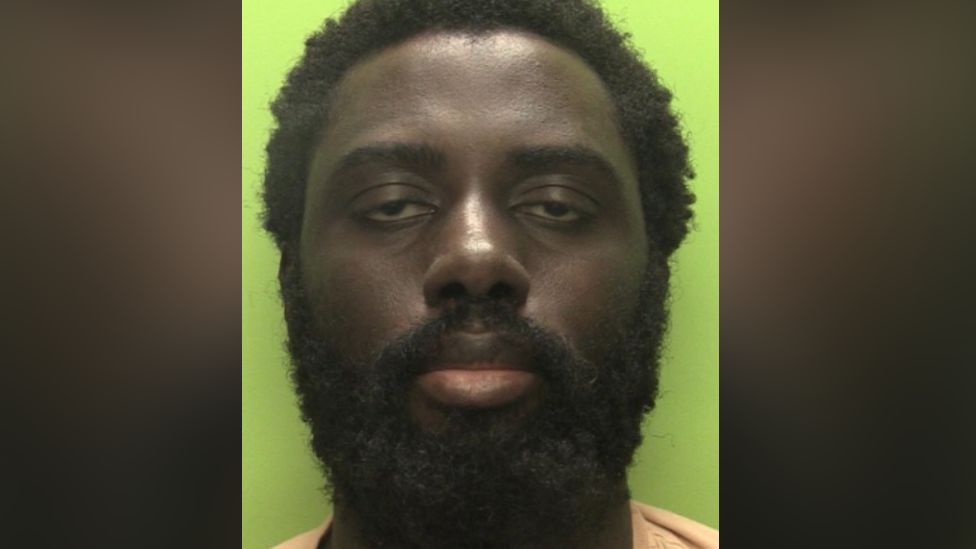The attorney general is considering whether judges should review the sentence of killer Valdo Calocane.
The 32-year-old fatally stabbed students Barnaby Webber and Grace O’Malley-Kumar, before killing school caretaker Ian Coates last June.
He was given an indefinite hospital order on Thursday after admitting to the killings in Nottingham.
The attorney general’s office confirmed it has received a referral arguing the sentence was unduly lenient.
During the sentencing at Nottingham Crown Court, Mr Justice Turner said Calocane would “very probably” be detained in a high-security hospital for the rest of his life, after he admitted manslaughter on the grounds of diminished responsibility.
On 13 June, University of Nottingham students Mr Webber and Ms O’Malley-Kumar, both 19, were fatally stabbed in Ilkeston Road just after 04:00 BST.
Mr Coates, 65, was found dead with knife injuries in Magdala Road after his van was stolen.
Pedestrians Wayne Birkett, Marcin Gawronski and Sharon Miller were then driven at in Milton Street and Upper Parliament Street, in the city centre.
Calocane, diagnosed with paranoid schizophrenia before the attacks, also pleaded guilty to three counts of attempted murder.
Mr Justice Turner branded Calocane’s crimes “sickening” adding his actions “shocked the nation and wrecked the lives of your surviving victims and the families of them all”.
He added the “central issue” was “whether at the time of committing these offences, you were suffering from symptoms of severe mental disorder”.
The judge said, however, the psychiatric evidence did not detract from the “horror” and “disastrous” impact of the offences.
He said, in his view, Calocane’s abnormality of mind “significantly contributed” to him perpetrating the attacks.
But, speaking outside the court Emma Webber, mother of Mr Webber, was critical of the Crown Prosecution Service’s decision to downgrade the charge from murder.
She also accused Nottinghamshire Police’s Assistant Chief Constable Rob Griffin of having “blood on his hands”, following the force’s failure to detain Calocane after an arrest warrant was issued in September 2022, over an assault on an officer.
Hours after the sentencing, a spokesman for Attorney General Victoria Prentis confirmed her office had received a referral arguing the sentence administered had been unduly lenient.
Law officers now have 28 days to carry out a review and weigh up whether to refer the case to the Court of Appeal to decide whether the sentence was appropriate.

Under the Unduly Lenient Sentence Scheme, anyone can ask for a crown court sentence to be reviewed if they think it is too short.
Recent data released by the Attorney General’s Office in October showed officials were asked to look at almost 1,200 cases in 2022.
Of these, 139 were reconsidered by the Court of Appeal and, as result, 95 people were given longer sentences.
When asked on Thursday, Prime Minister Rishi Sunak said it was “right” Calocane would “spend very probably the rest of his life” in a high-security hospital.
He also said he has sent his “heartfelt condolences” to the victims’ families, but declined to say whether he would order a public inquiry into the case.



